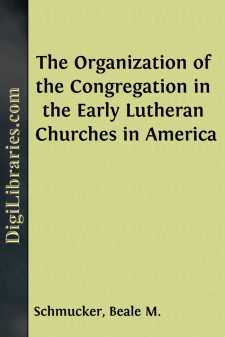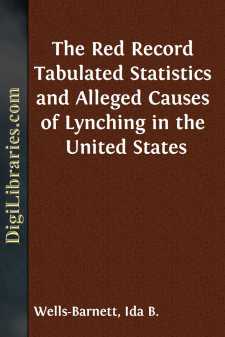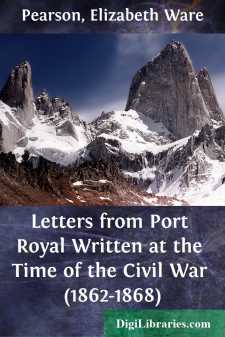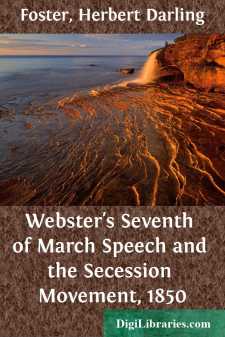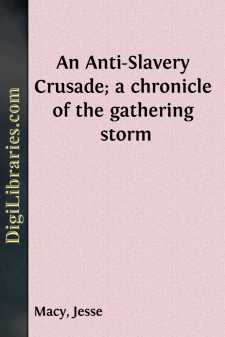History
- Africa 30
- Americas (North Central South West Indies) 50
- Ancient 68
- Asia 58
- Australia & New Zealand 8
- Canada 41
- Caribbean & West Indies 1
- Civilization 20
- Eastern Europe 12
- Europe 310
- Expeditions & Discoveries 60
- General 77
- Historical Geography 1
- Jewish 9
- Latin America 3
- Medieval 8
- Middle East 13
- Military 248
- Revolutionary 8
- Study & Teaching 5
- United States
- Western Europe 56
- World 13
United States Books
Sort by:
by:
Jacob D. Green
NARRATIVE, &c. My father and mother were owned by Judge Charles Earle, of Queen Anne's County, Maryland, and I was born on the 24th of August, 1813. From eight to eleven years of age I was employed as an errand boy, carrying water principally for domestic purposes, for 113 slaves and the family. As I grew older, in the mornings I was employed looking after the cows, and waiting in the house,...
more...
The Organization of the Congregation in the Early Lutheran Churches in America. The Lutheran Church in this country has had an opportunity, as never before in its history, to determine for itself the whole form of its organization, uncontrolled by any external forces. In the old world the intimate and organic union of the church with the State left little liberty in this respect. When, therefore, the...
more...
by:
John L. Cotter
Part One Exploration: The Ground Yields Many ThingsByJohn L. CotterSupervising Archeologist, Colonial National Historical Park“As in the arts and sciences the first invention is of more consequence than all the improvements afterward, so in kingdoms, the first foundation, or plantation, is of more noble dignity and merit than all that followeth.”—Lord BaconIn the summer of 1934 a group of...
more...
THE NEW PENELOPE. I may as well avow myself in the beginning of my story as that anomalous creature—a woman who loves her own sex, and naturally inclines to the study of their individual peculiarities and histories, in order to get at their collective qualities. If I were to lay before the reader all the good and bad I know about them by actual discovery, and all the mean, and heroic, attributes this...
more...
THE CASE STATED The student of American sociology will find the year 1894 marked by a pronounced awakening of the public conscience to a system of anarchy and outlawry which had grown during a series of ten years to be so common, that scenes of unusual brutality failed to have any visible effect upon the humane sentiments of the people of our land. Beginning with the emancipation of the Negro, the...
more...
PREFACE. All creation is musical—all nature speaks the language of song. 'There's music in the sighing of a reed,There's music in the gushing of a rill;There's music in all things, if man had ears;The earth is but an echo of the spheres.' And who is not moved by music? "Who ever despises music," says Martin Luther, "I am displeased with him." 'There is a...
more...
INTRODUCTION With Commodore Dupont's capture, on November 7, 1861, of two earth forts which the rebels had recently thrown up at Hilton Head and Bay Point, South Carolina, the Sea Island region became Union territory. The planters and their families having fled precipitately, the United States Government found itself in possession of almost everything that had been theirs, the two chief items...
more...
I. During the session of Congress of 1849-1850, the peace of the Union was threatened by problems centering around slavery and the territory acquired as a result of the Mexican War: California's demand for admission with a constitution prohibiting slavery; the Wilmot Proviso excluding slavery from the rest of the Mexican acquisitions (Utah and New Mexico); the boundary dispute between Texas and...
more...
by:
Bill Nye
CHAPTER I. THE DISCOVERY OF AMERICA. It was a beautiful evening at the close of a warm, luscious day in old Spain. It was such an evening as one would select for trysting purposes. The honeysuckle gave out the sweet announcement of its arrival on the summer breeze, and the bulbul sang in the dark vistas of olive-trees,—sang of his love and his hope, and of the victory he anticipated in the...
more...
by:
Jesse Macy
CHAPTER I. INTRODUCTION The Emancipation Proclamation of President Lincoln marks the beginning of the end of a long chapter in human history. Among the earliest forms of private property was the ownership of slaves. Slavery as an institution had persisted throughout the ages, always under protest, always provoking opposition, insurrection, social and civil war, and ever bearing within itself the seeds...
more...



